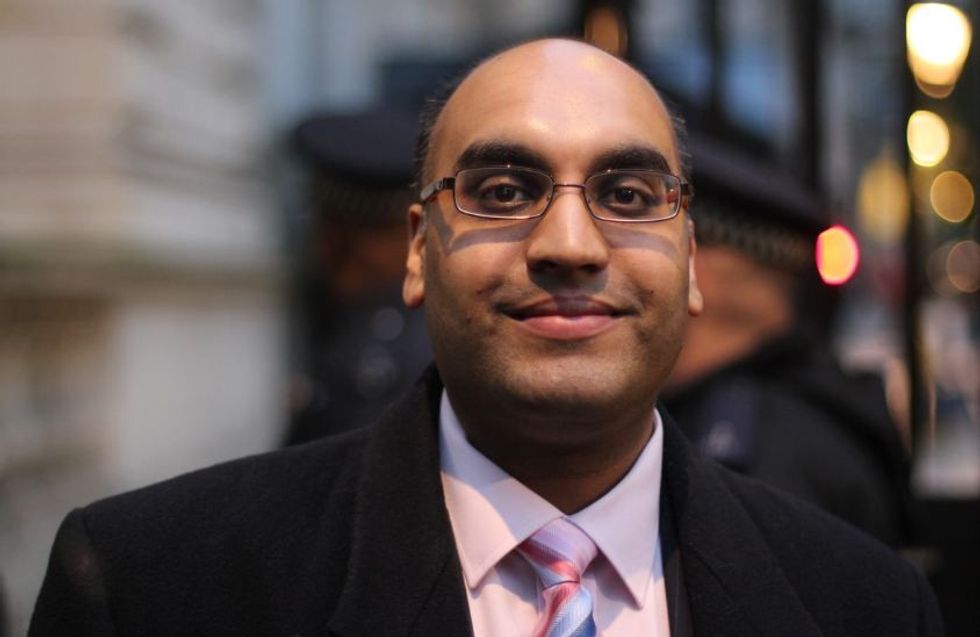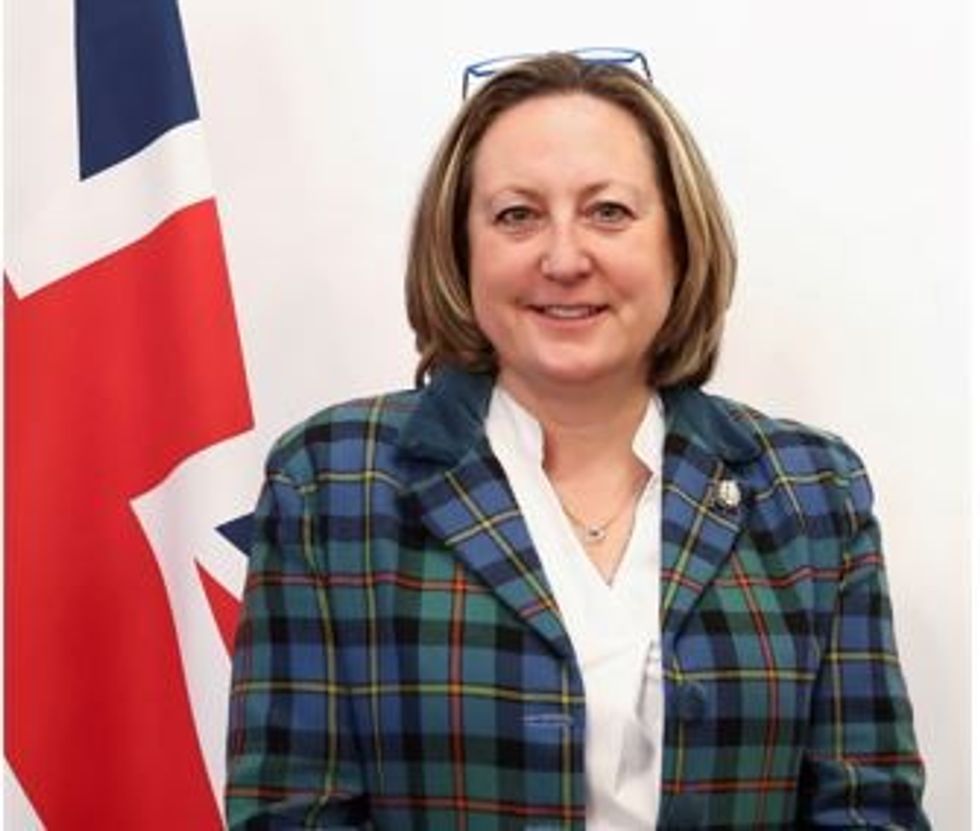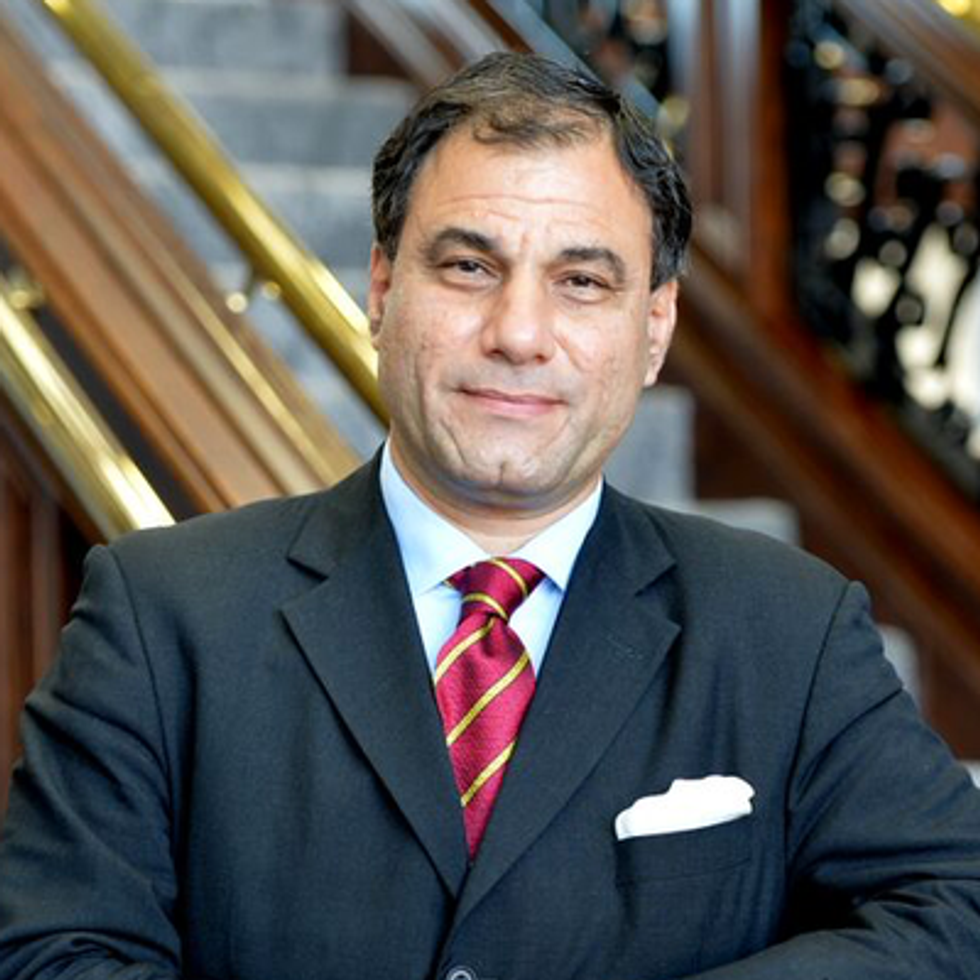By Amit Roy and Sarwar Alam
HAVING achieved Brexit, Boris Johnson’s new year’s resolution is to “Get FTA done” – a reference to the Free Trade Agreement that the British prime minister is pursuing with his Indian counterpart, Narendra Modi.
Although no dates have been announced, the international trade secretary Anne-Marie Trevelyan, who took over the post when Liz Truss was promoted to foreign secretary, is due to go to Delhi “soon” with the aim of negotiating a deal.
A spokesperson for Trevelyan – she apparently has Truss’s support on a more liberal visa policy, but apparently not that of the home secretary Priti Patel – said: “India is projected to become the world’s third-largest economy by 2050, and a Free Trade Agreement will open up huge opportunities for UK businesses to trade with India’s £2.25 trillion economy.
“Companies up and down the country can look forward to the benefits, from manufacturers in the West Midlands to tech experts in Belfast. We look forward to launching negotiations early this year.”
Indo-UK bilateral trade has been stuck around the £20 billion mark, which business figures on both sides have described as “disappointing”.
Anne-Marie Trevelyan
The ideal would be to push this to the level of India beginning in earnest this year. Exporting and growing international revenue needs to be a priority for the UK. Businesses that export are more competitive, dynamic and innovative. We must encourage all UK companies, including startups, to have the attitude and desire to export from day one – as with my experience at Cobra Beer.
“The UK and India share a special and deep-rooted relationship and should use this to their advantage and strike an ambitious trade deal that delivers for business. The FTA can be a catalyst for closer economic ties, breaking down trade barriers and fuelling investment flows. This, in turn, can enable businesses to take advantage of market opportunities in areas where the UK is globally competitive.”
A senior UK source expressed reservations in one regard: “It is disappointing to see India stop issuing business visas. However, I don’t interpret this as adverse and I think they will resume.
“If the negotiation for a deal starts this year, I would say it would take a minimum two years. But these things can go on much longer, especially if we want to include a comprehensive section on services, which would be breaking new ground.
“India has been talking about ‘early harvest’ but it takes the same effort as a comprehensive deal and the key negotiation concession always happen towards the end – so neither side will want to play these early. Also, the importance of a trade deal is not only in smoothing the way for flows of good and services, but also making it easier to do business and invest in each other’s countries.
“Creating these types of frameworks is arguably more important than fiddling around with tariffs.”
Steel tycoon Lord Swraj Paul, who used to be a trade ambassador for the UK when Tony Blair was prime minister, also did not take too negative a view of India-UK business arrangements.
“A lot of these agreements are more political than commercial,” he observed.
“Boris Johnson and Narendra Modi wanted to do more business with each other.”
Paul, chancellor since 1999 of Wolverhampton University, where half its international intake of students is from the Indian subcontinent, said: “India and the UK have been friends for a long time. They know each other’s culture, and education would be a good way of putting the two countries together.”

Business consultant Amarjit Singh, who is the special adviser on India at Southampton University, offered a relatively upbeat assessment: “It’s an incredibly exciting time for UK-India relations across the full spectrum. Both countries will have their own priority area that they will want to champion and incorporate within the agreement, but while deepening people to people (contact). And cultural links are certainly a shared objective by both governments.”
India is keen to export more agro-based products and textiles, which generate jobs. Britain wants import duties on whisky, which can be as high as 150 per cent, reduced substantially, as well as access for British lawyers to work in India – something strongly opposed by their protectionist-minded Indian counterparts.
There have been suggestions that visa charges for Indians coming to the UK could be reduced. According to a report last week in the Times, “there could also be reductions in visa fees for both work and tourism. At present, it can cost an Indian citizen up to £1,400 for a work visa, while students pay £348 and tourists £95.
“For British tourists travelling to India the fee is £110, while a one-year business visa costs £165.”
The paper reported: “India has held out the prospect of agreeing a limited round of tariff cuts on products such as whisky, which attract duties of 150 per cent. However, the UK is said to want to concentrate on a more ambitious deal, including greater access to UK service industries.”
One government figure told the Times: “The tech and digital space in India is still hugely protectionist and if we could open up even a slither of access, it would put us ahead of the game.”
The Department for International Trade has been engaged in consulting as many interested people as possible. It believes that a comprehensive FTA is now possible “because Britain has left the EU and is free to negotiate a new generation of deals that make it easier for businesses to trade and deliver benefits to the whole of the UK”.
Its aims include “making it easier for businesses to export and import by removing and lowering tariffs in high priority sectors such as food and drink, healthcare and life sciences and advanced manufacturing; and promoting investment flows by attracting Indian investment, making the UK an attractive destination for Indian companies looking to grow in globalised economies and encouraging further UK investment in India.”
There is a wider strategic goal for Britain: “Stronger trade links with India will support broader foreign policy interests in the Indo-Pacific region, and will pave the way for a deepening partnership between the UK and India, while helping shape the global trade agenda in areas like digital trade, women’s economic empowerment and gender equality, the environment and climate change.”
On paper, it is easy to see why an FTA between the UK and India, the world’s sixth and fifth-largest economies respectively, could benefit both sides.
Britain has a population of 66.8 million, compared with India’s 1.37 billion. The UK’s GDP is estimated at £2.45tr, compared with India’s £7.17tr. The UK’s GDP per capita is £36,585, compared with India’s much more modest £5,248.
For Britain, getting an FTA with India would be the ultimate prize in a postBrexit world. Trevelyan’s department recognises that “in 2019, India was home to 18 per cent of the world’s population and almost 7.1 per cent of global GDP, contributing more to global GDP growth than all but the US and China.
“India has made significant progress in reducing absolute poverty from 21.6 per cent in 2011 to 13.4 per cent in 2015. Evidence suggests that the Indian middle-class market is growing fast and, in terms of expenditure, could overtake the US before 2030 to become the second-largest middle-class market in the world.
“According to the World Bank, India is now poised to transition to a higher and more widely shared level of prosperity. By 2047, most citizens could join the ranks of the global middle class. India’s population is younger than the world average, with only 6.6 per cent of the population aged 65 or older as opposed to 9.3 per cent for the world as a whole.
“More than a third of India’s population is living in urban areas.”
Desai reckons that for India, a bigger priority is getting a FTA with the European Union. “It is the UK’s fault this did not happen before.
“The UK wanted to sell more whisky and get access to legal services in India – and prevented an India EU deal.”
Desai also believes that Britain will spend much of 2022 trying to mitigate the negative impact of Brexit on the British economy. “The Office for Budget Responsibility has said as a result of Brexit the UK’s GDP will be reduced by four per cent.”
He predicts that “the Indians will be tough negotiators” and that, in any case, the UK is not as important for India as India is for the UK. But there are strong reasons why India, too, might be able to see the benefits of a trade agreement.
At Southampton University, Singh argued: “A UK-India FTA would create significant confidence and momentum for people, for businesses, for exporters, for investors in both countries to unlock new opportunities, to create wealth, to create new business ventures, and generate jobs in both directions, thereby creating a real win-win situation.
“India has signalled on various occasions that mobility and transfer of people and workers and staff is an important consideration. And as prime minister Modi has often said, it is the ‘living bridge’.”




















